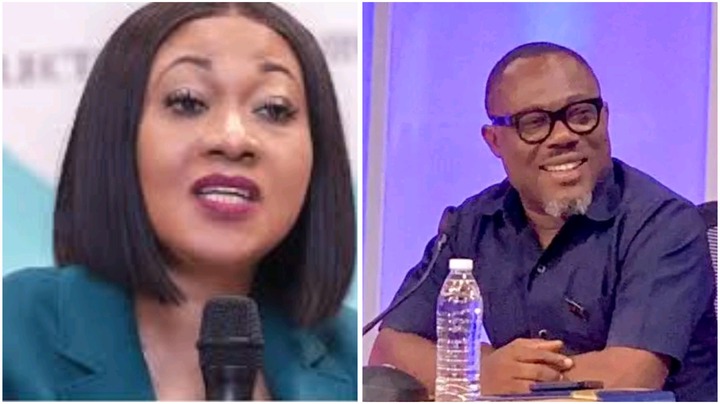
In the wake of growing public scrutiny surrounding the role of the Electoral Commission of Ghana in the upcoming 2024 general elections, prominent political commentator and writer for the National Democratic Congress, Hanan-Confidence Abdul, has shed light on the cautious approach taken by Professor Ransford Gyampo when discussing the chairperson of the Electoral Commission, Madam Jean Mensah. This nuanced perspective highlights a balancing act between professional accountability and personal gratitude, raising important questions about the dynamics of political commentary in Ghana.
As the nation gears up for what promises to be a contentious electoral season, the actions and decisions of the Electoral Commission, particularly under Jean Mensah’s leadership, have been thrust into the spotlight. With various stakeholders voicing their concerns over perceived biases and inefficiencies, the expectation for robust criticism has been palpable. However, Prof. Gyampo, a respected political analyst and lecturer, has often opted for a more tempered response.
Hanan-Confidence Abdul points out that Prof. Gyampo has refrained from harsh critiques of Jean Mensah despite the mounting pressure to do so. In instances where others have been vocally critical, Gyampo has either chosen silence or has acknowledged the contributions of Mensah during her previous tenure at the Institute of Economic Affairs (IEA). This posture raises intriguing questions about the motivations behind his measured responses.
Abdul’s observations underscore a significant aspect of Gyampo’s character: gratitude. In his commentary, he notes that Prof. Gyampo frequently highlights the positive impact Jean Mensah had on his professional development. “Before the 2024 elections, whenever Jean Mensa became the subject of criticism on any platform, Prof. Ransford Gyampo would often recuse himself,” Abdul writes, emphasizing Gyampo’s tendency to commend her contributions rather than engage in derogatory commentary.
This inclination to focus on the positive speaks volumes about the values Gyampo holds—particularly the principle of recognizing those who have contributed to one’s growth. Abdul articulates this sentiment succinctly, stating, “Never speak ill of those who have intentionally played a role in your growth and development.”
The backdrop of the current political landscape cannot be overlooked. Jean Mensah has been accused of being subservient to the ruling New Patriotic Party (NPP), which complicates her position as the head of the Electoral Commission. Hanan-Confidence Abdul acknowledges these allegations but also expresses an understanding of why Gyampo may choose to navigate this terrain with caution. His restraint, Abdul suggests, is a reflection of a deeper ethical consideration in political discourse.
“Despite my strong opposition to Jean Mensa’s actions, I never took issue with Prof. Gyampo for treading carefully when it came to matters concerning her,” he concludes. This statement encapsulates the tension between personal beliefs and professional integrity that many political analysts face in their commentary.
Hanan-Confidence Abdul’s insights into Prof. Gyampo’s approach to discussing Jean Mensah illuminate the complexities inherent in political commentary. As Ghana approaches its 2024 general elections, the interplay between criticism and gratitude will continue to shape the narratives surrounding key figures in the electoral process.
The article serves not only as an analysis of Gyampo’s actions but also as a commentary on the broader implications of political speech in a democratic society. As the nation awaits the unfolding electoral drama, the measured voices of analysts like Prof. Gyampo remind us of the importance of balance in the pursuit of truth and accountability.
Source link
